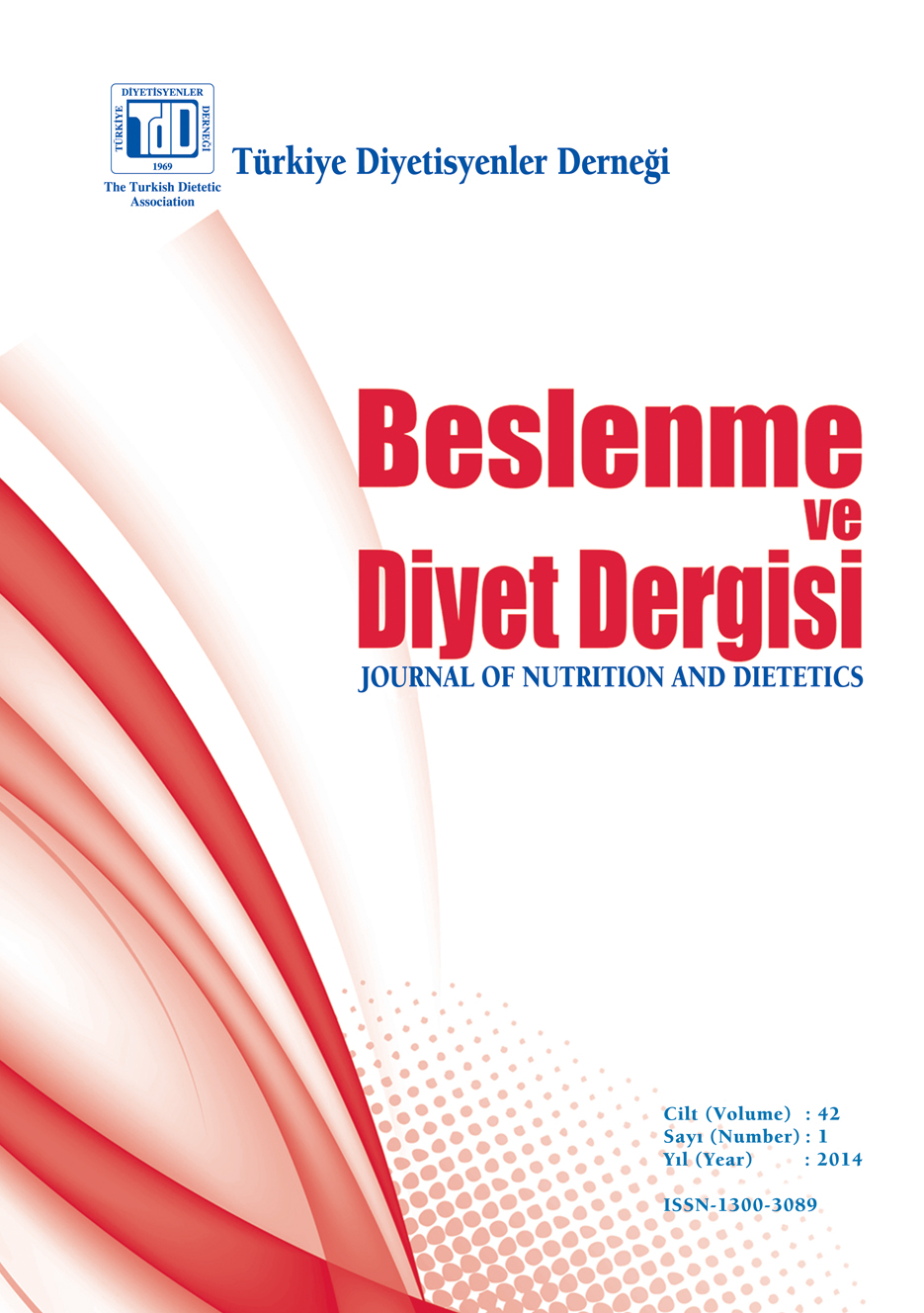The Evaluation of General Nutritional Habits in Non-Obese Subjects with Polycystic Ovary Syndrome
Keywords:
Energy intake, appetite regulation, polycystic ovary syndrome, meal frequencyAbstract
Aim: To determine general nutritional habits in non-obese subjects with polycystic ovary syndrome (PCOS) and healthy controls. Subjects and Methods: This descriptive trial is conducted on new diagnosed polycystic ovary syndrome (PCOS) outpatients and healthy controls at Hacettepe University, Department of Endocrinology and Metabolism in Ankara. 18 PCOS patients and 18 healthy control women matched for age and body mass index (BMI). Results: The mean±SD age and BMI were 21.7±3.4 year, 22.2±3.3 kg/m2 respectively. Out of total, 91.6% of the study group were graduated from Universities and 94.4% of them were single (n=34). Only 77.8% were sometimes using alcohol and 77.7% of the participants were not using nutritional supplements. PCOS were observed mostly in the mothers of the study group (88.9%, n=16) and mostly in the aunts (88.9%, n=16) of the control group (p>0.05). Totally, 55.6% of the patient’s families and 38.9% of the control’s families had hypertension or CVD. T2DM were determined in the 44.4% (n=8) of the study and 66.7% (n=14) in the of the control group. Overweight ratio showed similarity in both groups. The choice “I am never dieting” were answered by 14 persons, “1-4 time a month” by 7 subjects, “ten and more times a month” were just answered by one subject and “I am always on diet” were answered by two subjects of the study (p>0.05). Three main meals consumed regularly were lunch in subjects and controls (72.2% and 55.6%, respectively). Regularly 2 meal a day were consumed mostly (p>0.05). The most skipped meal was lunch in both groups (p>0.05). Mean eating time were mean±SD 20.83±6.5; 23.82±6.5 min in study and control groups, respectively (p>0.05). Conclusion: The patient and control groups had similar nutritional habits. We need further research with larger groups related on nutritional habits in PCOS.

